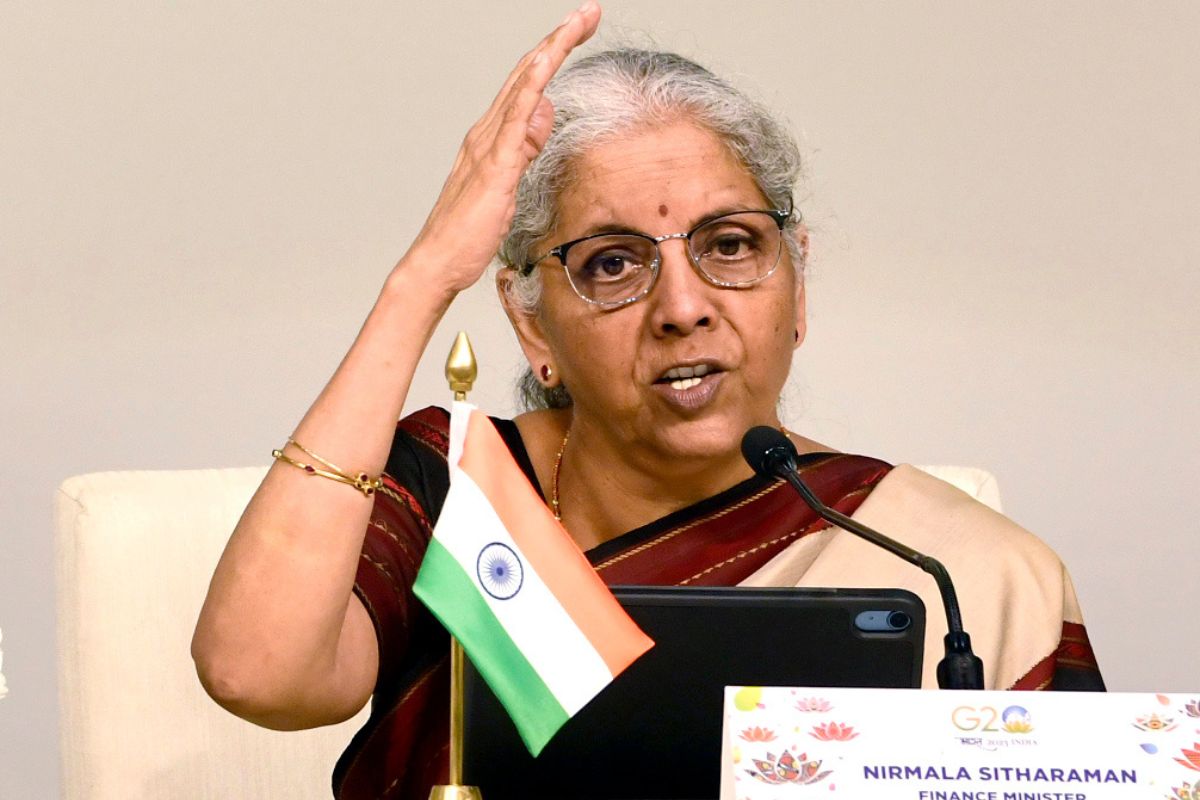Opposition slams Nirmala Sitharaman over apparent remarks on Periyar in language row
She had alleged that an “elderly person,” the DMK worship, had once described Tamil as a “barbaric” language that “cannot even help beggars get alms.”
A country is not just its soil, a country is its people’ With the Finance Minister Nirmala Sitharaman quoting great Telugu poet and playwright Gurajada Appa Rao, the flavour of this year’s budget with focus on Viksit Bharat had a slew of measures aimed at fostering economic growth, enhancing global competitiveness, and promoting inclusive development in India.

Union Finance Minister Nirmala Sitharaman (Photo:ANI file photo)
A country is not just its soil, a country is its people’ With the Finance Minister Nirmala Sitharaman quoting great Telugu poet and playwright Gurajada Appa Rao, the flavour of this year’s budget with focus on Viksit Bharat had a slew of measures aimed at fostering economic growth, enhancing global competitiveness, and promoting inclusive development in India. With the major share of the pie being reserved for agriculture and the common mass, the corporate sector felt a slight pang of being slighted.
This was perhaps resonated through the stock market being overall indifferent to the consumption boost that the Budget tried to inject. Having said so, what cannot be ignored is the emphasis on Micro, Small and Medium Enterprises (MSMEs) for Viksit Bharat. The budget definitely had a subtle focus on transforming the corporate sector, with significant enhancements in credit availability, tax reforms, and initiatives to promote innovation and entrepreneurship. One of the key highlights of the budget is the doubling of the credit guarantee cover for MSMEs, which is expected to facilitate an additional credit of Rs 1.5 lakh crore over the next five years.
Advertisement
Additionally, the introduction of customized credit cards for micro enterprises and a new Fund of Funds for start-ups is expected to further support entrepreneurial ventures. Keeping in view the theme of promoting entrepreneurship, the budget also extended the benefit of a three-year tax holiday to all eligible start-ups incorporated before 1 April 2030. It is also not an unknown fact that the companies are grappling with huge compliance burdens and tax litigations. The budget promised significant relief by introducing substantial tax reforms, including a new income-tax bill aimed at simplifying the tax structure and reducing litigation. This move is expected to foster a more businessfriendly environment and reduce compliance costs for corporates.
Advertisement
The budget while emphasizing investment in people and innovation, also brought initiatives such as the establishment of National Centres of Excellence for skilling, expansion of medical education, and the launch of a Deep Tech Fund of Funds, which may involve investment and involvement of both the public and private sector enterprises to yield desired results. These efforts are complemented by sector-specific measures, including support for clean tech manufacturing and the promotion of exports through the Export Promotion Mission.
If one looks closely, what emerges is that the objective was not to reduce the tax burden, but to focus on the Make-in-India concept, wherein the Government aims to promote domestic manufacturing and value addition by increasing the Basic Customs Duty (BCD) on the import of goods and reducing or exempting BCD on components, parts, and capital goods. These sectors are prime ones, often depending on the other tiers or sectors for their sources of production. By targeting these sectors, an overall boost has been very subtly trickled down to even the lower tiers.
Overall, the Union Budget 2025- 2026 has furnished the right ingredients to the corporate to promote economic growth, enhance global competitiveness, and foster a more business-friendly environment. However, what is important is a close PublicPrivate Partnership to achieve the goals set out in the Budget. It is a time of transformation to achieve that much-coveted financial stability, followed by growth for the nation. And how that is achieved is something that we all need to wait and watch!
(The writer is a Chartered Accountant.)
Advertisement